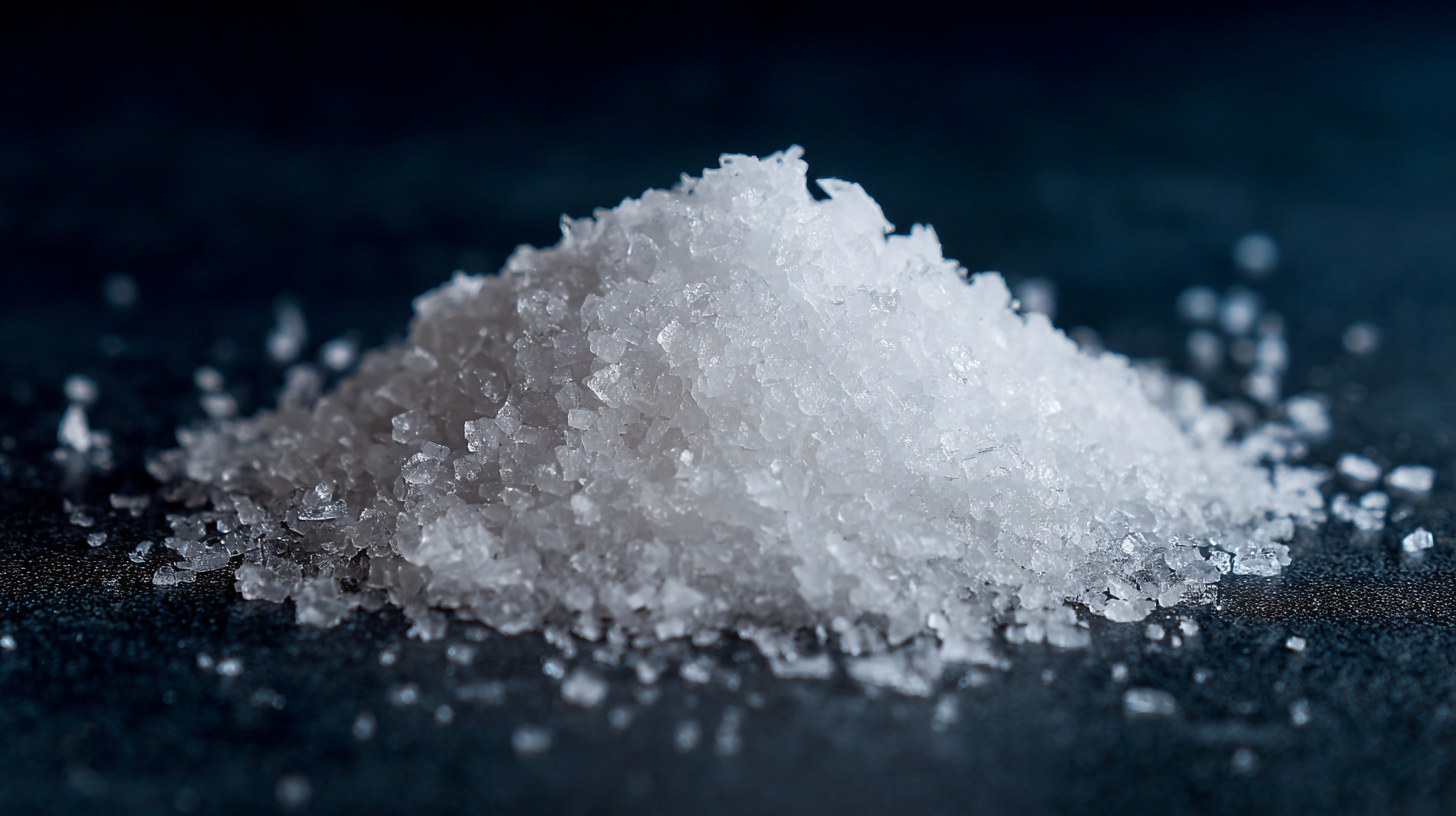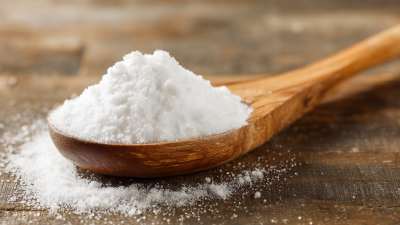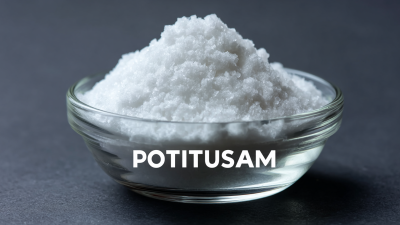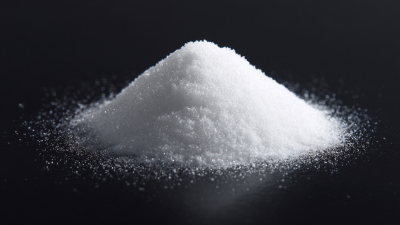Potassium Bisulfate Salt Compound, often overshadowed by its more commonly known counterparts, is a remarkably versatile ingredient that deserves attention for its numerous applications. This unique salt compound is not only a valuable component in various chemical processes but also plays a significant role in the agricultural sector, particularly as a fertilizer that enhances soil quality. Its ability to lower pH levels makes it beneficial for crops that thrive in acidic conditions, promoting better nutrient uptake. Furthermore, Potassium Bisulfate is utilized in the manufacturing of certain products, including glass and cleaning agents, showcasing its multifunctional properties. In this article, we will explore how to effectively harness the benefits of Potassium Bisulfate Salt Compound, diving into its applications, advantages, and essential tips for integration into your endeavors. Whether you're a gardener looking to improve your soil or a manufacturer seeking effective materials, understanding the potential of this compound is key to unlocking its myriad benefits.
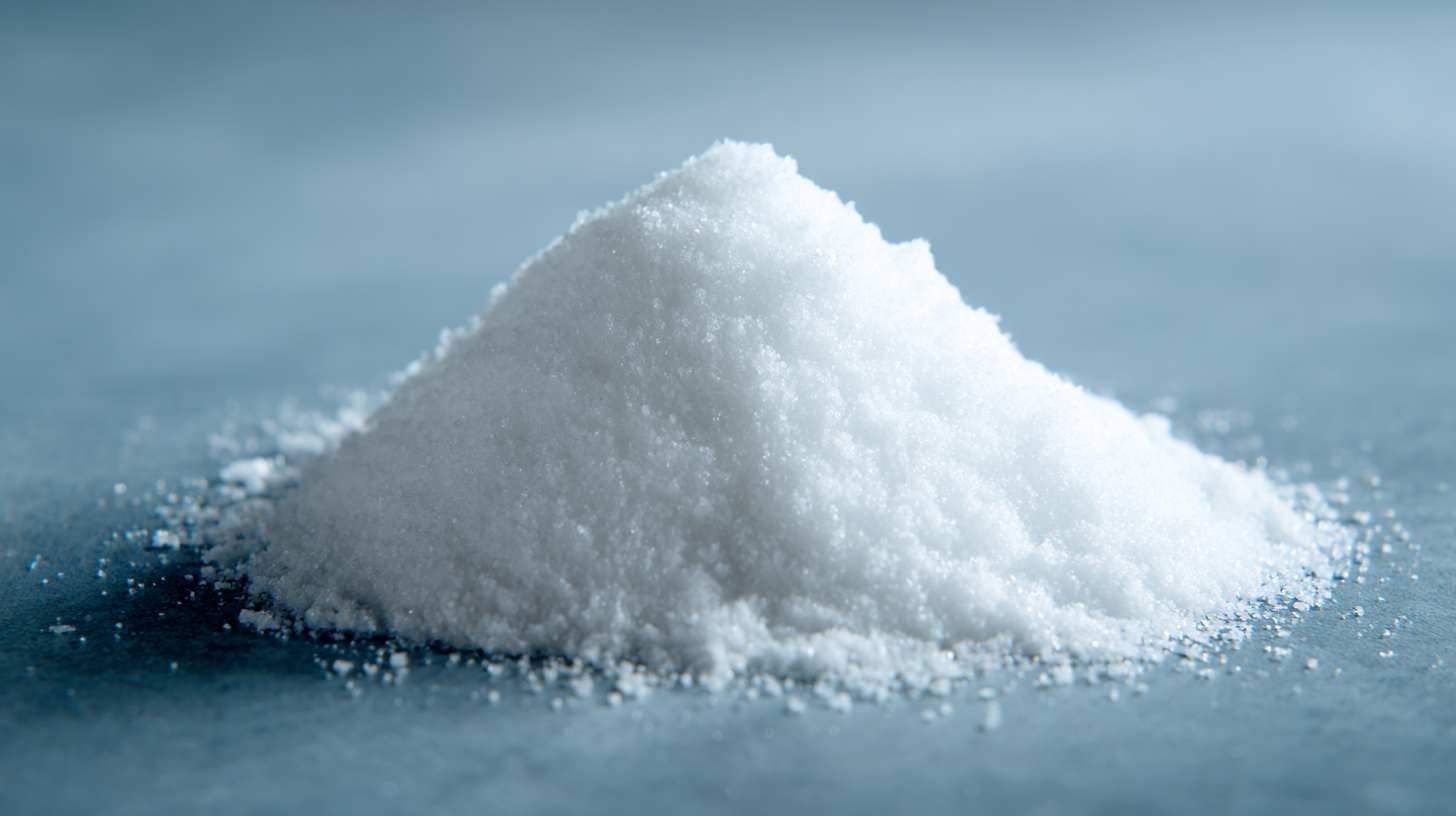
Potassium bisulfate (KHSO4) is a versatile salt compound that offers a myriad of applications across various industries, thanks to its unique chemical composition. As an acidic salt formed from the partial neutralization of sulfuric acid with potassium hydroxide, it boasts a molar mass of 120.17 g/mol. This compound is highly soluble in water, making it suitable for use in fertilizers, food additives, and cleaning agents. According to a recent industry report by Research and Markets, the demand for potassium bisulfate in the fertilizer sector is expected to grow by 4.5% annually over the next five years, driven by the increasing need for nutrient-rich soil amendments.
In addition to its agricultural applications, potassium bisulfate plays a significant role in various industrial processes. It is used in the production of glass, ceramics, and certain pharmaceuticals due to its stabilizing effects. The compound also serves as a key ingredient in the formulation of pH-adjusting agents, enhancing the effectiveness of cleaning products.
**Tips:** When handling potassium bisulfate, always use protective gloves and goggles to prevent skin irritation or respiratory issues. Store the compound in a cool, dry place to maintain its stability and efficacy. For those in the agricultural sector, consider incorporating potassium bisulfate into your fertilization schedule to optimize crop yield and health.
| Property | Description |
|---|---|
| Chemical Formula | KHSO₄ |
| Molar Mass | 136.16 g/mol |
| Appearance | White crystalline powder |
| Solubility | Highly soluble in water |
| pH Level | Acidic (pH around 3) |
| Uses | Fertilizers, food additives, cleaning agents |
| Safety | Generally recognized as safe when used appropriately |
| Storage Conditions | Keep in a cool, dry place away from incompatible substances |
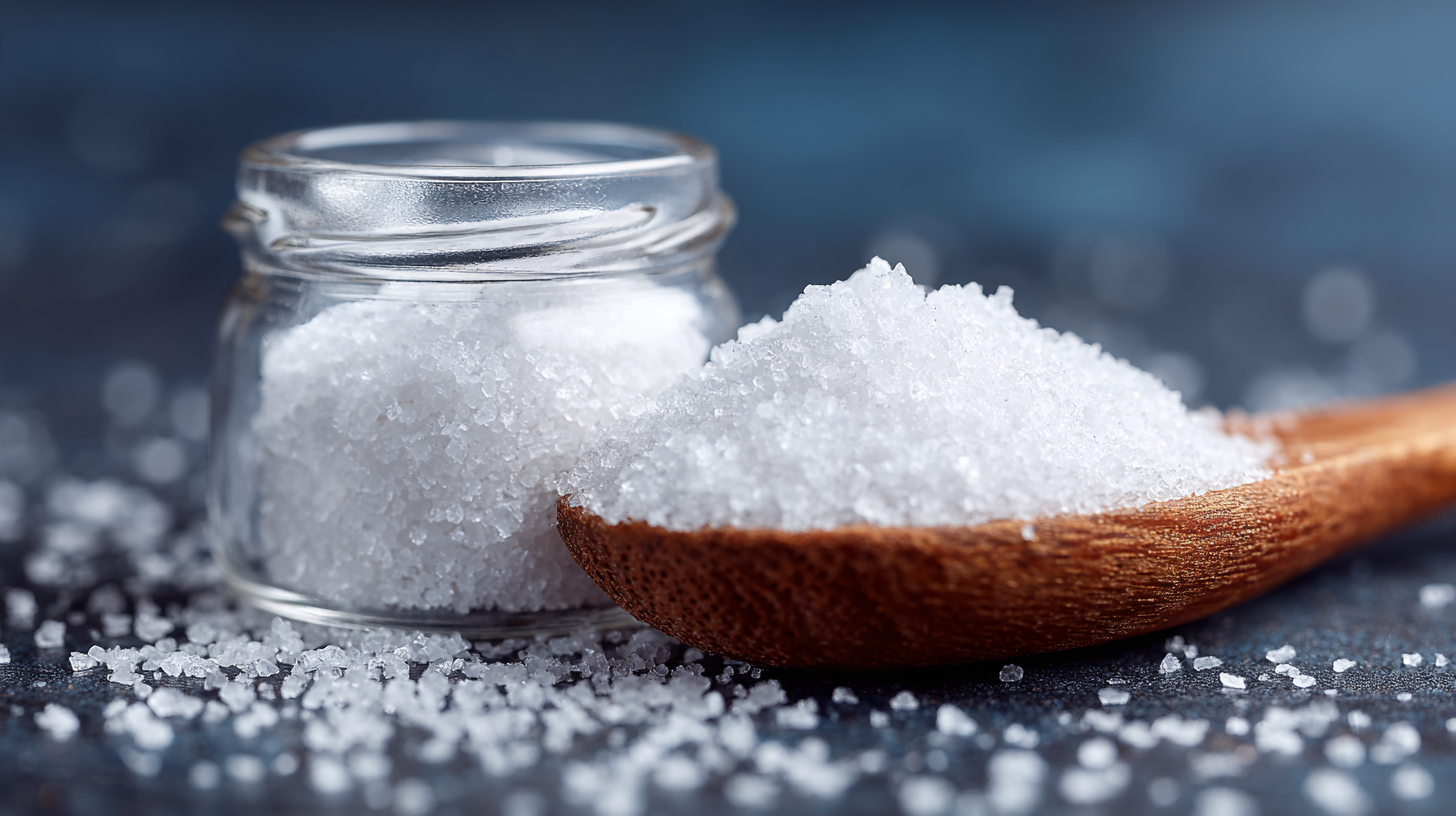 Potassium bisulfate is increasingly recognized for its multifaceted applications in agriculture and soil enhancement. This versatile compound serves as an excellent source of potassium and sulfur, two essential nutrients that plants require for optimal growth. By incorporating potassium bisulfate into soil, farmers can improve nutrient availability, leading to enhanced crop yields and quality. Its high solubility allows for easy application and absorption, making it an effective choice for both conventional and organic farming practices.
Potassium bisulfate is increasingly recognized for its multifaceted applications in agriculture and soil enhancement. This versatile compound serves as an excellent source of potassium and sulfur, two essential nutrients that plants require for optimal growth. By incorporating potassium bisulfate into soil, farmers can improve nutrient availability, leading to enhanced crop yields and quality. Its high solubility allows for easy application and absorption, making it an effective choice for both conventional and organic farming practices.
In addition to providing vital nutrients, potassium bisulfate also plays a key role in soil pH management. It acts as an acidifying agent, which can help in lowering the pH of alkaline soils, thus creating a more favorable environment for nutrient uptake by plants. This property is particularly beneficial in regions where soil alkalinity hampers crop production. Furthermore, potassium bisulfate's contributions to soil structure can enhance water retention and aeration, promoting healthy root development and improving overall soil fertility. Through these applications, potassium bisulfate proves to be an invaluable asset in modern agricultural practices.
Potassium bisulfate, a versatile salt compound, plays a crucial role in various industrial processes. Its unique chemical properties make it a valuable ingredient in the manufacturing of fertilizers, where it serves as a source of both potassium and sulfur, essential nutrients for plant growth. Furthermore, the compound is utilized in the glass and ceramics industries, where it acts as a fluxing agent, lowering the melting point of raw materials and enhancing production efficiency.
In addition to these industries, potassium bisulfate is also applied in the food industry as a food preservative and acidulant. Its ability to regulate acidity levels and inhibit spoilage makes it a preferred choice for extending the shelf life of food products. Moreover, potassium bisulfate's environmental profile is favorable, as it is less harmful compared to other chemical alternatives, providing companies with a safer option for their production processes while adhering to environmental regulations. As industries continue to seek sustainable and efficient solutions, potassium bisulfate stands out as a compound that offers multiple benefits across diverse applications.
When considering the use of potassium bisulfate, it is essential to be aware of health and safety considerations associated with this versatile salt compound. This chemical is commonly used in various applications, including food preservation, agriculture, and as a cleaning agent. While it offers numerous benefits, improper handling can pose risks to health. Exposure can lead to respiratory issues, skin irritation, and eye damage, particularly in its dry form or when it is dusted into the air.
To minimize risks, it is crucial to always use potassium bisulfate in well-ventilated areas and wear appropriate personal protective equipment, such as gloves and goggles. Additionally, understanding its proper storage and disposal methods can prevent potential hazards. Users should follow all safety guidelines and material safety data sheets (MSDS) provided by manufacturers to ensure safe handling. By taking these precautions, one can enjoy the benefits of potassium bisulfate while maintaining a safe environment.
Potassium bisulfate, often overshadowed by its counterparts in the fertilizer industry, has garnered attention for its unique properties and benefits. When comparing potassium bisulfate to traditional fertilizers like potassium chloride and potassium sulfate, several key differences emerge. A report from the International Fertilizer Industry Association highlights that potassium bisulfate contains a higher percentage of sulfur, which is essential for plant health, particularly in sulfur-deficient soils. Studies show that crops treated with potassium bisulfate not only yield more but also exhibit improved resistance to diseases and environmental stress.
Furthermore, potassium bisulfate is noted for its compatibility with various agricultural practices. Unlike potassium chloride, which can be detrimental to certain crops due to its high chloride content, potassium bisulfate is a chloride-free alternative that minimizes potential fertilizer burn. According to research conducted by the American Society of Agronomy, using potassium bisulfate results in increased nutrient uptake and overall soil health, making it a viable option for organic and sustainable farming practices. This versatility places potassium bisulfate in a unique position within the market, encouraging more farmers to consider its advantages over conventional fertilizers.
